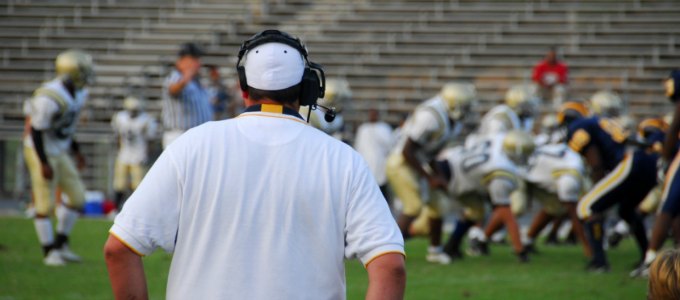With the Super Bowl on Sunday, consider this little factoid: At high peaks of the season, coaches watch up to 40 hours of game tape a week by themselves, with other coaches and with the team.
That means somewhere between getting ready to play and facing questions about deflated footballs, New England Patriots coach Bill Belichick has been holed up in a room somewhere for the equivalent of a work week, watching his successes and failures over the last season. The same goes for Seattle Seahawks coach Pete Carroll.
“It’s not woulda-shoulda-coulda,” said Stacy Feiner, an executive coach who focuses on middle-market organizations. Watching tape means seeing how play on the field deviated from what was expected and how well the team adjusted to that change in plan. Psychologically, it brings back memories of what happened, which establishes a connection that helps performance the next time around.
The same process could be contributed to corporate learning, particularly leadership development. After a coaching session or training experience, Feiner said she has participants write their opinions of it in a stream of consciousness, as if they’re delivering an instant replay. There’s little structure or direction needed in this process, which allows the brain to dump all of its thoughts into an email like a cannon spews confetti onto the field at the end of a bowl.
The result looks more like a full replay of the game rather than a highlight reel sent to recruiters — it includes everything, good and bad. These messages outline the value of the session, what worked or didn’t work and what they want to learn next or would have preferred to learn. It documents how learners have changed, too, which allows them to see how they’ve adjusted their skills to match the changing playing field at work.
Although Feiner keeps up the correspondence, not every executive coach or learning leader has the time. However, having correspondence via email acts as a reminder for employees that it took work to improve their leadership skills.
“Sometimes clients are gullible to amnesia, because once they start thinking a new way they think they’ve always thought that way,” Feiner said. That kind of complacency is dangerous because it cultivates a belief that no more learning is needed. This is why it’s important to get the brain to reflect directly after the experience and much later on. “It’s the executive coaching version of watching tape.”
More importantly, having that instant replay of a learning experience tucked away as an email or report shows what teaching or coaching methods worked best so coaches can provide — and learners can seek out — similar experiences in the future.
“Reflection is critical to successful coaching,” Feiner said. “But more importantly, it’s important to teach people what’s working and not working so they can teach others.”
This blog post originally appeared in Talent Management's sister publication, Chief Learning Officer.















